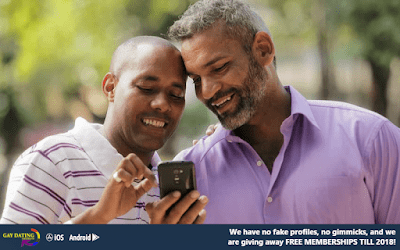Gay Dating and Violence: Are You Dating an Abuser?
Written by Joseph • August 11, 2015
Same-sex domestic violence doesn’t seem like a big problem to many gay men. Statistics are hard to come by; it’s hard to know the scope of the problem. Just like male rape, however, men find themselves being victimized on occasion. For men there can be the additional issue that because we think it can’t happen to […]

Same-sex domestic violence doesn’t seem like a big problem to many gay men. Statistics are hard to come by; it’s hard to know the scope of the problem.
Just like male rape, however, men find themselves being victimized on occasion. For men there can be the additional issue that because we think it can’t happen to us, we have a hard time understanding what has happened — or we are quick to blame ourselves.
Violence in gay relationships can be physical, sexual, emotional — or a combination of all three. Emotional abuse is indicated by frequent put-downs, name-calling, humiliation, mind games or guilt trips. Similarly, relationships that become controlled by jealousy, isolation and obsessive control are abusive.
Abusive relationships don’t usually start out violently; if they did, it would be easier for victims to recognize and avoid them. Instead, there is a progression of abuse.
The perpetrator may be very affectionate, then become more controlling or have angry outbursts. Apologies may follow these episodes, along with promises of change. But then the occasions of hostility become more frequent. Angry words are thrown, as are objects.
Problems that affect gay relationships are often pretty much like those that affect our hetero counterparts. Women are far and away the greatest victims of domestic violence — and heterosexual men are overwhelmingly most likely to be perpetrators — male-male or female-female couples can also become abusive. Individuals with low self-esteem who have unrealistically romantic ideas about relationships may be especially prone to find themselves in abusive relationships. Relationships in which drugs and alcohol play a significant part can be more at risk for abuse and violence.
If you are in an abusive relationship, you must take your situation seriously. This is not a time for unrealistic optimism and sentimentality; this is a time for saving your life. If your partner is serious about change, he will do two things: First, he will accept responsibility for his own actions, rather than shift the blame to you. Second, he will seek treatment — not as a way of manipulating you into staying in the relationship, but treatment on his own, without conditions. If he meets these conditions, you will need to decide whether the relationship is one which is healthy for you to continue or not. You may want to seek professional help.
If your partner does not accept responsibility for his actions and does not seek to change, you must establish a plan for safely separating from him.
Batterers often become enraged when their victim seeks to leave. If you are sharing a home with your abuser, you will need to establish a plan for leaving to minimize the likelihood of a violent confrontation. Are their friends who can help? If you will need to move out, where will you go? Establish a plan to help you move to safety.
For more information, contact the National Domestic Violence Hotline at 800-799-SAFE.
Have you found the right one, or are you still searching?

Join a gay dating site where you can meet single guys from any town or city. Rely instead on Gay Dating Solutions to do the work for you!
Don’t get fooled by FREE offers made by other sites. Gay Dating Solutions is offering a free 6 month promotion ABSOLUTELY no strings, request for credit card numbers, etc…it is the only site that is truly free to join!
Sign-up now: www.gaydatingsolutions.com
Like us on Facebook: www.facebook.com/GayDating101
Tweet us: twitter.com/GayDating101



